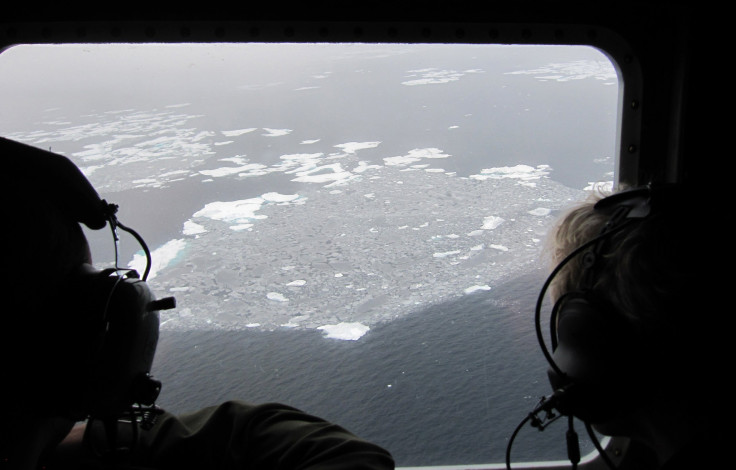Exxon Arctic Drilling Benefitting From Global Warming: Oil Company Denied Climate Change Science While Factoring It Into Arctic Operations, Report Shows

For the more than 20 years oil company Exxon has sought to cast doubt on the science of climate change, it also quietly has factored climate change calculations into its planning for oil operations in the Arctic, the Los Angeles Times reported after analyzing hundreds of internal documents and published materials. Melting sea ice due to warmer ocean temperatures, one of the effects of climate change, makes searching for oil and gas easier.
The company, which in 1999 became Exxon Mobil, helped found the Global Climate Coalition, which from 1989 to 2002 argued the role "of greenhouse gases in climate change is not well understood," the New York Times reported Friday. Yet as early as 1992, researchers for the company were analyzing the impact climate change could have on its operations.
“Certainly any major development with a life span of say 30-40 years will need to assess the impacts of potential global warming,” Ken Croasdale, a senior researcher for a Canadian subsidiary of Exxon who from 1986 to 1992 examined the positive and negative effects of warming in the Arctic, said in 1991. “This is particularly true of Arctic and offshore projects in Canada, where warming will clearly affect sea ice, icebergs, permafrost and sea levels,” he told an engineering conference.
This is terrifying. http://t.co/9qcX3aIMxN pic.twitter.com/kzNwZGVesq
— Tracey Lien (@traceylien) October 10, 2015
The next year, Croasdale said global warming could lower the costs but increase the length of time it would be possible to explore for oil in the Beaufort Sea, north of Alaska and Canada's Yukon Territory. He and his team of researchers had developed models that showed with climate change, drilling in the Beaufort Sea could grow from two months per year to as many as five, with costs cut by as much as half.
At the same time, rising sea level due to climate change could hurt infrastructure, Croasdale warned, the LA Times reported. The company should brace itself for higher repair costs, more flooding and unpredictable weather.
Around the same time, its board decided, in response to a shareholder request in 1990, the company work to reduce its carbon dioxide emissions, that facts on climate change and its future effects were "very unclear."
Exxon Mobil and Imperial, its Canadian subsidiary, hold, with BP, drilling rights in more than 1 million acres of the Beaufort Sea, for which the companies jointly bid $1.7 billion, the LA Times reported Friday.
© Copyright IBTimes 2025. All rights reserved.






















